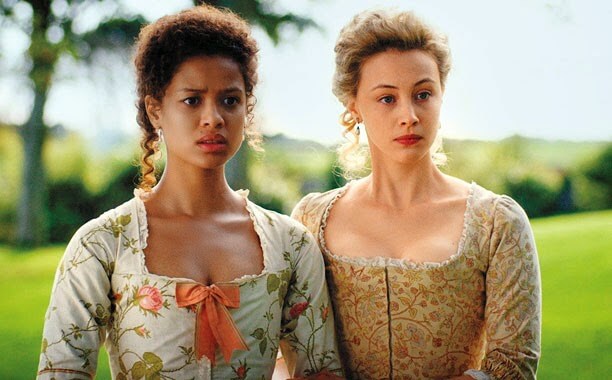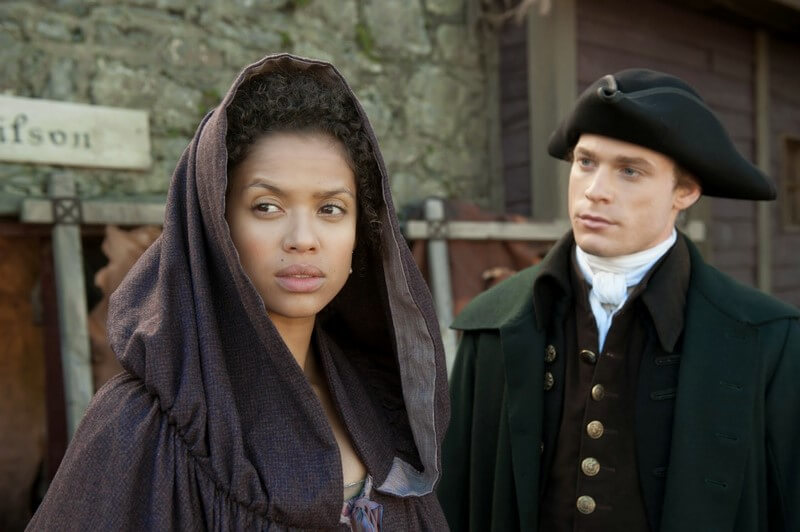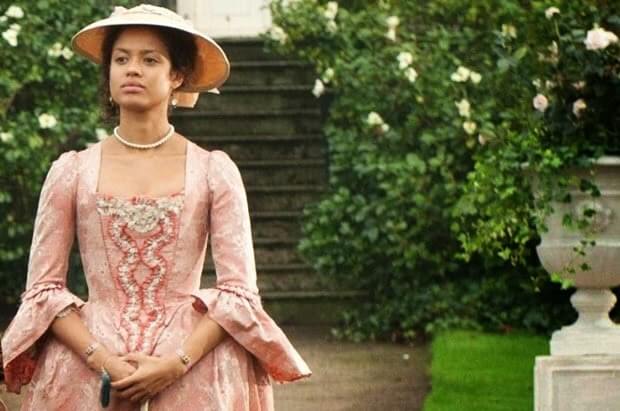One of the most pronounced peculiarities of modern politics stems from Michael Gove, Nigel Farage and their conservative allies yearning for a time in which Britain was "Great again". A time when we ran the world and boasted an unparalleled global empire. A time we were the richest nation on the Earth.
Yet, what is not often mentioned, is that this idealised, romanticised view of the past, and the wealth upon which our land is built, stems from the most repugnant practice in human history. Why do so many insist on celebrating our greatest shame, white-washing our exploitation of slavery entirely from the tale of our fair island? Amma Asante, in her sophomore directorial feature, gives us a history lesson we should never forget - and the type of lesson which could never be found on a Gove curriculum.
Taking us back to 1769, a time in which Britain was indeed at its "greatest" and most colonial, building an empire on stolen labour and the degradation of human lives, Belle appears as an Austen-esque romance. Our story centres on high-society gentility, an era of affluence and dining - yet, underneath the formal splendour, is a repulsive ugliness which lingers and contaminates the very ground it lives in. Whilst David Lynch showed us the warring, feral beetles under the white picket fences of Reagan-era America, the viciousness and visceral ugliness behind superficial respectability, Asante does the same here too to Georgian England.
 Dido Belle (Gugu Mbatha-Raw) is, in many ways, the type of hero one may well meet in a Jane Austen novel. Except it would be unimaginable for Elizabeth Bennett or any of her literary peers to receive a title as crass as "Lord Mansfield's infamous mulatto". Dido, however, is the illegitimate daughter of a mixed race couple, a slave and a member of the Royal Navy. Her father leaves her to be raised by her uncle, the aforementioned Lord Mansfield (Tom Wilkinson), whilst Dido professes: "I know little of my mother except the colour she has given me."
Dido Belle (Gugu Mbatha-Raw) is, in many ways, the type of hero one may well meet in a Jane Austen novel. Except it would be unimaginable for Elizabeth Bennett or any of her literary peers to receive a title as crass as "Lord Mansfield's infamous mulatto". Dido, however, is the illegitimate daughter of a mixed race couple, a slave and a member of the Royal Navy. Her father leaves her to be raised by her uncle, the aforementioned Lord Mansfield (Tom Wilkinson), whilst Dido professes: "I know little of my mother except the colour she has given me."How, exactly, does Dido fit in to the acidic eccentricities of a society which mixes formal manners with rigid hierarchy? Ultimately, her position is a cruel one - too lowly, based on the colour of her skin, for any "respectable" gentlemen to wish to settle with her, Dido is also considered too high class to settle with a partner below her social standing. She is, for all intents and purposes, alone. This is never more explicit than during dinner - cultural mores will not let her dine with servants, she is above them, but polite society may be shocked by her skin; she is kept away from visitors during eating hours. "Such are the rules. You know them well."
But rules, as we know, are made to be broken. We are reminded: just because something is law, or imposed on us, does not make it right. One man with such a view is John Davinier (Sam Reid) - a protagonist of such sound moral compass, integrity and charm, he is the Lloyd Dobler of Mr Darcys. Yet, he is the lowly son of a vicar - a society built upon the classification of people, of the reduction of their characters, cannot allow a romance between the principled John and the passionate Dido to burn with the fire it deserves. Yet, after a bristling introduction to one another, their attraction is inevitable.
As amour develops between our heroes, Asante's film also introduces us to one of the more vulgar laws of the day. This is a period in which human life was treated as merchandise, as cargo. Insurance could be claimed for losses - indeed slaves could be worth more dead as spoiled merchandise than alive as damaged goods. Reports of the entire "cargo" of the slave ship "Zong" being drowned draws some suspicion. How can romance or love possibly blossom in a world so barbaric and evil?
Wives, in this world, are almost considered as property too, traded between families based on class and social standing rather than anything as radical as love. Dido notes that a woman who looks for a husband is often akin to "a negro who begs for a master." That is, as John reminds her, "unless she marries her equal."
Yet, this is not how society works in Georgian England - its a place which Davinier remarks: "despises love as though it was the devil's own creation!" It is quite clear, however, that Davinier loves Dido truly, whilst others around her view her as a beast; even when gazed upon sexually, it is through the prism of her otherness, her exotic qualities. She is, a potential suitor suggests, suitable only for carnal pleasures before "one finds a proper English rose to decorate one's home". Its a disgusting statement but exactly the type of sentiment that comes from a society which does not just accept, but indulges unchecked white male privilege - its no wonder that many white, male, heterosexual special interest groups (such as the aforementioned UKIP) would prefer England to devolve back to when it was "great".
Belle, pleasingly, is not a film exclusively about either race or gender, however, but something much more than that too. Asante's movie lays out its themes broadly and clearly but does so in a manner aimed to spark nuanced debate and intelligent discussion, remaining a treat for the eyes, the ears, the heart and the mind too. Its a film about humans transcending labels and the sadness which comes when we are governed only by the labels awarded to us by hierarchy rather than meritocracy. Its a film, to paraphrase Davinier, "about all of us. Its about everything... Everything that is important."
Belle is a stand-out feature in another banner year for British cinema. The lead performances by Mbatha-Raw and Reid are full of agency, brio, spark and vitality - the pair are impossibly becoming and drive the sumptuous film forward with their energy and shared humanity. Asante too must be lauded for the deliberate pace of the delightfully detailed movie which quietly grows in momentum, and emotion, towards a powerfully emotive conclusion.
If we English are indeed to be patriotic and proud of our country, it should be for films like this and not for a past in which we ruled an empire but lost our soul. This is why we need new voices in cinema - using templates of the old, Asante has crafted something euphorically pertinent for today's society and, simultaneously, one of the finest movies to be created on these isles for some time. A work of real majesty.



No comments
Post a Comment